In the large and microfine blood vessels of the human being, the red and white blood cells and the blood platelets circulate in a certain number. This is indicated by corresponding standard ranges, which can be determined in the medical laboratory tests. If the leukocyte system falls ill, this can lead to a Leukopenia to lead.
What is leukopenia?

© Henrie - stock.adobe.com
The Leukopenia is the opposite of leukocytosis. In leukopenia, the number of white blood cells in the bloodstream is below the minimum requirement.
The leukopenia is therefore a blood disease that must be treated. The term leukopenia is actually just a meaningful abbreviation for that Leukocytopenia.
Since the leukocytes are only in special stages of maturation in the blood system after they have gone through different development phases, varying types of leukopenia are classified. In addition to so-called granulocytopenia or neutropenia, lymphocytopenia is another leukopenia. Granulocytes and lymphocytes are special types of leukocytes.
causes
Like all diseases that can affect the organs and organ systems of humans, diseases of the white blood system are also caused by various causal criteria. A Leukopenia can for example be caused by external environmental factors such as radioactive radiation or absorbed toxins as well as by active pharmaceutical ingredients.
Cytostatic drugs or thiamazole are considered to be the drug causes of leukopenia. Other tissue and blood cell disorders should also be considered as additional causes of leukopenia. These diseases include aplastic anemia (anemia) and myelofibrosis.
A disease of the white blood system can also be triggered by allergenic substances. This is known as allergic agranulocytosis as part of the causes of leukopenia. Bacterial and viral pathogens as well as hypersplenism (increase in size of the spleen) are also significant in leukopenia.
Typical symptoms & signs
- Susceptibility to infection
- Inflammation of the oral mucosa
- Periodontal disease
- Sore throat
- Sinus infection
- Boils
- Swelling of the lymph nodes, fever
- possibly pneumonia
Diagnosis & course
People under a Leukopenia suffer, get sick very often and quickly. In addition, symptoms of leukopenia affect various organs.
In this context, leukopenia shows abnormal chronic abnormalities in the oral cavity, inflammatory processes in the throat, nose and ears, pneumonia, increased furuncle formation on the skin and an increase in the size of the lymph nodes.
Acute health problems often occur in the case of leukopenia, which the affected person leads to the doctor and initiates an appropriate diagnosis. These are usually attacks of fever, abscesses that heal poorly and multiply, disorders of wound healing and increased progression even with illnesses such as runny nose or cough.
In addition to the assessment of the clinical picture, which is revealed during the examination of the patient, a complex of further examinations is necessary for the patient in a diagnostic clarification of leukopenia. If the number of leukocytes is determined as part of a blood count, it is well below the lower limit of 4,000 leukocytes per microliter. Depending on whether the leukopenia is lymhopenia or granulocytopenia, the blood cells are reduced accordingly.
In addition to counting the white blood cells, the cell assessment in a colored smear also shows shifts in the stages of maturation and decimations of the leukocytes.The laboratory assessment of the leukocytes with regard to their occurrence in the bloodstream also allows conclusions to be drawn about leukopenia that can be proven by differential diagnosis.
In addition, examinations of the body organs, ultrasound examinations of the spleen and of removed bone marrow are carried out if leukopenia is suspected.
Complications
Leukopenia is characterized by various complaints and can therefore also lead to various complications and symptoms. In most cases, those affected suffer from an increased susceptibility to infections and inflammation. This also leads to various diseases and delayed wound healing. The quality of life of the person affected is significantly reduced by the leukopenia.
Various inflammations occur, which in the worst case can even lead to death. Those affected suffer from a fever and not infrequently from pneumonia. Furthermore, there is also a cough and runny nose. The resilience of the person affected is also reduced by the leukopenia and the patient becomes tired and exhausted. Self-healing does not occur in leukopenia, so that this disease must definitely be treated by a doctor.
Treatment of this disease is carried out with the help of drugs and antibiotics. As a rule, there are no particular complications. The life expectancy of the patient is also not reduced with timely treatment. Furthermore, the leukopenia can recur after the treatment.
When should you go to the doctor?
People who get sick often and quickly should discuss this with a doctor. There may be a serious medical condition that needs to be diagnosed and treated. If there are any unusual symptoms, such as recurring inflammation or skin changes, medical advice must be obtained immediately.
An enlargement of the lymph nodes as well as wound healing disorders, abscesses and chronic rhinitis are warning signs that need to be clarified. People who notice a decrease in well-being for no apparent reason are best advised to consult their family doctor. Leukopenia can manifest itself through a number of symptoms, not least exhaustion and fatigue, which must be treated. The disease does not heal on its own, which is why a clarification by your family doctor is necessary in every case.
Depending on the suspected diagnosis, the doctor will call in other specialists, such as internists, dermatologists and gastroenterologists. Physiotherapeutic measures are occasionally carried out for treatment, which is why a physiotherapist should always be consulted. In the event of serious complications, it is best to call an emergency doctor. People who have been exposed to harmful environmental factors such as radioactive radiation or exhaust fumes over a long period of time are particularly prone to leukopenia. People who regularly take cytostatics and comparable drugs or who suffer from allergies also belong to the risk groups and should have the described symptoms cleared up quickly.
Treatment & Therapy
In therapy one Leukopenia First, general procedures are considered which relate to the elimination of the causes. If the leukopenia was caused by a communicable infectious disease, hygienic measures are increasingly observed.
Another foundation on which the therapy of leukopenia is based are the drugs. With leukopenia, antibiotics and antifungal drugs are mainly prescribed. As an extension of these therapeutic activities, infusions based on so-called granulocytic concentrates can be administered in the case of leukopenia.
However, the effects that can be achieved are only temporary and are mainly accepted if the leukopenia is very severe.
You can find your medication here
➔ Medicines to strengthen the defense and immune systemOutlook & forecast
The prognosis of leukopenia results from the present cause of the health disorder. Under optimal conditions, the cause of the disease can be found within a short time and appropriate countermeasures can be taken. If the health impairments are revealed as a result of a side effect of the administration of medication, a change in the existing treatment plan and thus the choice of a different medication can result in freedom from symptoms.
The necessary production of blood cells inevitably begins after the active ingredients have been removed from the organism. If the leukopenia is based on the influence of external environmental factors, these are to be found to alleviate the symptoms and to eliminate them completely. Medical treatment can regulate the build-up of white blood cells in many patients. If left untreated, however, numerous complications and disorders occur in the organism. Spontaneous healing does not occur with this disorder.
In particularly severe cases, the person concerned becomes ill with various inflammations and the organism collapses. Premature death occurs because the body's immune system and blood circulation largely lose their function. In addition, organic damage can occur, which leads to irreparable damage. The prognosis improves if treatment is taken as early as possible. Nevertheless, lifelong therapy is necessary for some causes so that the production of white blood cells is sufficient.
prevention
A prevention against a Leukopenia is only possible if the known causes are eliminated. This applies, for example, to harmful drugs and radioactive and radiological radiation. The initiated prophylactic applications usually relate to an existing leukopenia and aim not to worsen its condition.
Aftercare
The intensity of the aftercare depends on the degree of leukopenia. Sufferers of this disorder depend on lifelong treatment in order to alleviate the symptoms and avoid further complications. An early diagnosis and treatment have a very positive effect on the further course of the disease. Those affected should pay particular attention to a healthy lifestyle. This is based on a balanced diet and moderate exercise. However, physical overexertion should be avoided as the susceptibility to infection is greatly increased in leukopenia sufferers.
You can do that yourself
In general, leukopenia can be treated with medication. For this reason, the possibilities of self-help with this disease are relatively limited.
Those affected should be careful when taking antibiotics and antimyotics that they may interact with other drugs. In particular, alcohol should not be consumed while taking these drugs, as this will significantly weaken the effect. If the leukopenia was caused by an infectious disease, the patient should take hygiene measures. This primarily includes washing or disinfecting your hands regularly. This can prevent further inflammations and infections. Bed rest should also be strictly adhered to in leukopenia in order to speed up recovery. If the disease is caused by a harmful drug or radioactive radiation, further exposure to these influencing factors must be avoided in any case.
As a rule, the disease progresses positively after taking the medication. In general, the person affected should take care of his body and not expose it to unnecessary stress. Strict bed rest should be maintained, especially if a fever occurs.



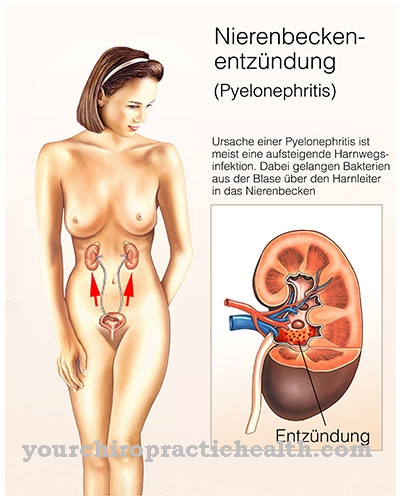

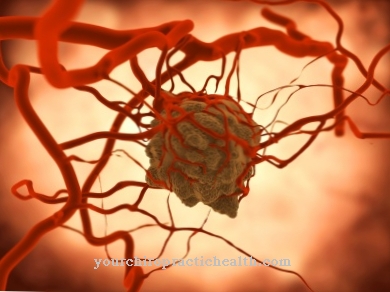
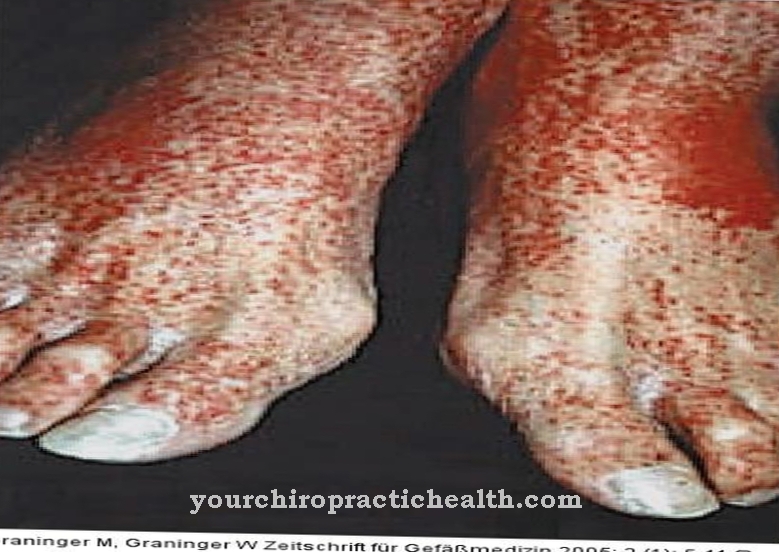





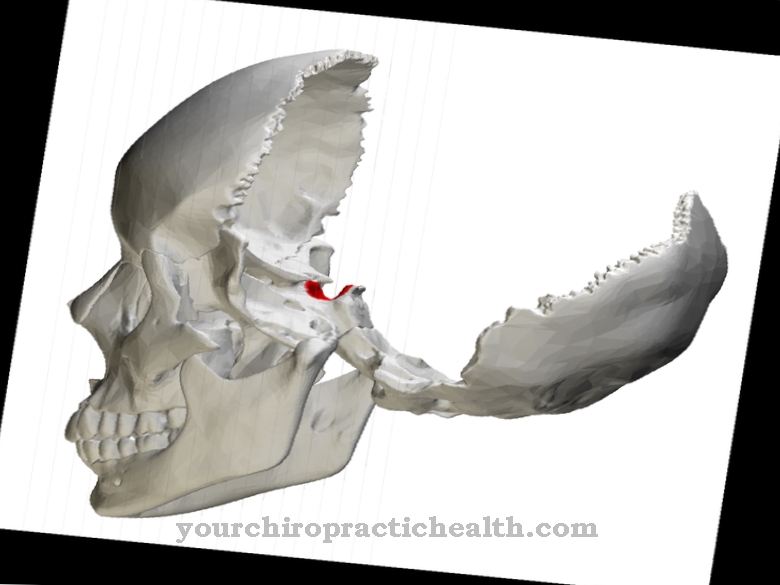



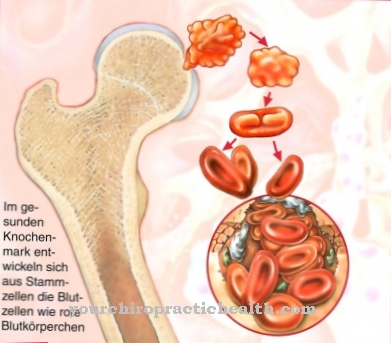






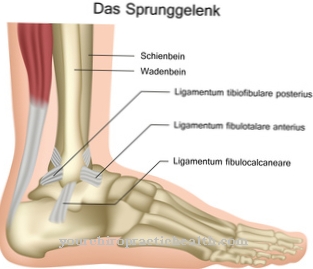

.jpg)

.jpg)
